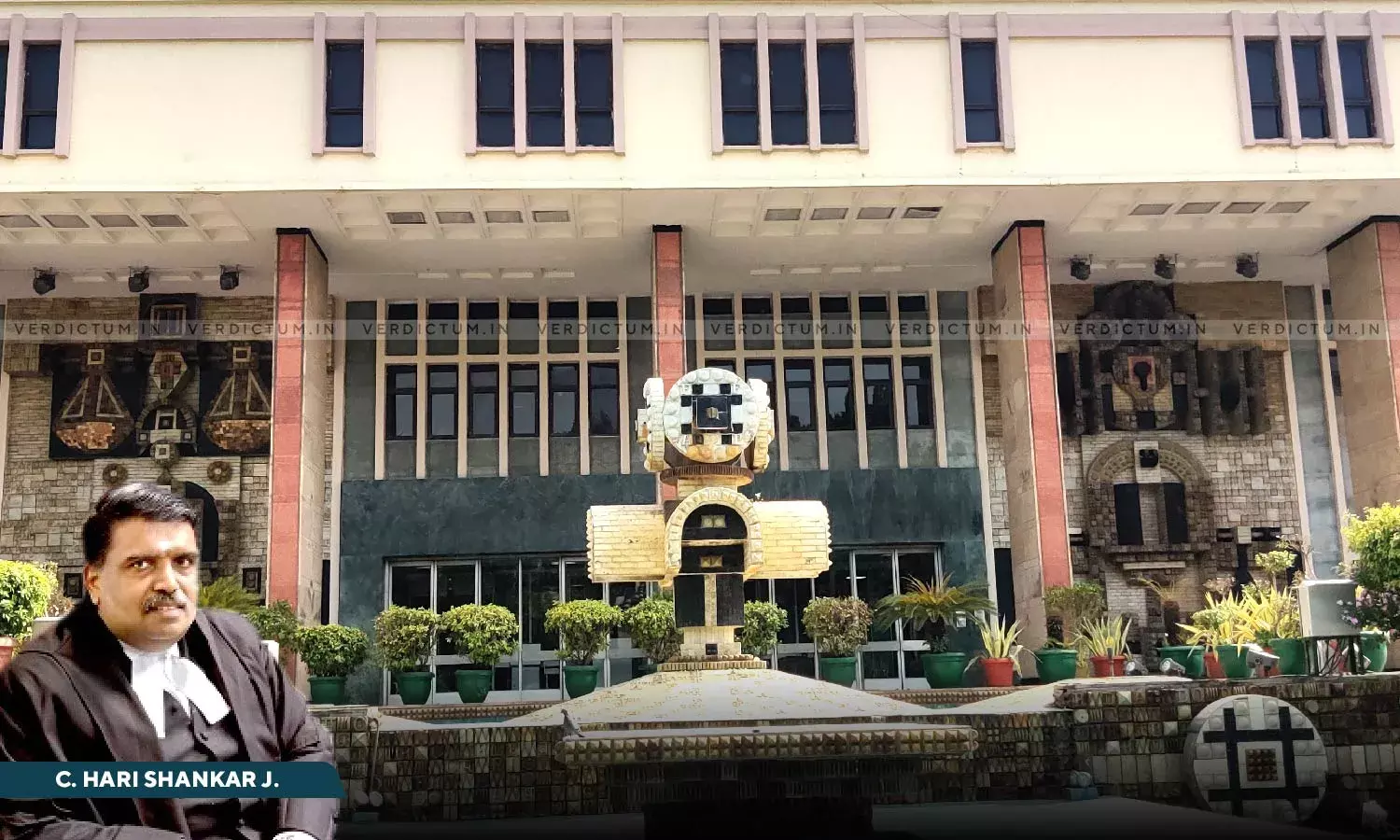Registry Of Trade Marks Is At Liberty To Effect Service Of Documents By E-Mail Only Where Party Being Served Has Provided An E-Mail ID: Delhi HC

The Delhi High Court has held that the Registry of Trade Marks is at liberty to effect service of documents by e-mail only where the party being served has provided an e-mail ID in the application or notice of opposition.
The Court was dealing with an appeal against an order passed by the Deputy Registrar of Trade Marks in an opposition filed by the appellant to application of the respondent seeking registration of the mark ‘ARMEX’.
A Single Bench of Justice C. Hari Shankar said, “In the present case, however, it is not in dispute that no e-mail ID was provided by the appellant in its notice of opposition. As such, it cannot be said that the e-mail ID at which the documents were sent by the Registry constitutes an “address for service” within the meaning of Section 143 of the Trade Marks Act. The Registry of Trade Marks is at liberty to effect service of documents by e-mail only where the party being served has provided an e-mail ID in the application or notice of opposition.”
The Bench further said that where no such e-mail ID is provided, sending of the documents by e-mail, even if it is in fact sent to the e-mail ID of the party concerned, would not constitute service of documents within the meaning of Section 143 of the Trade Marks Act.
Advocate Zeba Tarannum Khan appeared on behalf of the appellant while CGSC Harish Vaidyanathan Shankar appeared on behalf of the respondent.
In this case, on September 18, 2023, the Joint Registrar in the High Court closed the right of the respondent to file reply to the petition, noting the fact that respondent was served but had not filed any reply till then. The respondent was continuously absent in these proceedings ever since notice was issued in the appeal and continued to remain unrepresented. It was not in dispute that the copy of the counter statement to the notice of opposition was dispatched on the opponent by the Trade Mark Registry on November 22, 2017 only by e-mail.
The submission was that the e-mail was not one of the modes of services envisaged by Section 143 of the Trade Marks Act, 1999 and that, therefore, it cannot be said that appellant was appropriately served in the manner known to law. Section 143 of the Trade Marks Act states that an address for service, stated in an application or notice of opposition shall, for the purposes of the said application or notice of opposition, be deemed to be the address of the applicant or the opponent, and permits service of all documents in relation to the application or the notice of opposition by leaving the documents at, or sending them by post to, the said address as provided in the application or notice of opposition.
The High Court in the above context observed, “In the event that an e-mail ID is provided by an applicant or an opponent in the notice of opposition, I do not think that there can be any manner of doubt that service of documents relating to the application or the notice of opposition at the said e-mail ID would suffice as service within the meaning of Section 143 of the Trade Marks Act. This is because, by providing his e-mail ID in the application or notice of opposition, the applicant or opponent clearly agrees to communications be addressed to him at the said e-mail ID. A message is clearly conveyed to the Registrar that service could be effected even at the said e-mail ID. The words “leaving them at” as employed in Section 143, in my view, have to be read expansively enough to cover service by e-mail where the applicant or the opponent provides an e-mail ID in the application or notice of opposition.”
The Court added that if the applicant or the opponent provides an e-mail ID in the application or notice of opposition, it would not be open to the applicant/opponent to then argue that, though the documents relating to the application or the notice of opposition were sent by e-mail to the said e-mail ID, there has, nonetheless, been no service within the meaning of Section 143 of the Trade Marks Act.
“As, in the present case, the petitioner did not provide any email ID for communication in its notice of opposition, and it is not disputed that the counter statement was dispatched to the petitioner only by email, the petitioner cannot be said to have been properly served with the counter statement, as envisaged by Section 143 of the Trade Marks Act”, said the Court.
Accordingly, the High Court allowed the appeal, set aside the impugned order, and directed the appellant to comply with the statutory requirements consequent on receipt of the documents within the time stipulated in that regard.
Cause Title- M/s. Mex Switchgears Pvt. Ltd. v. Vikram Suri Trading as M/s. Armex Auto Industries (Neutral Citation: 2023:DHC:7588)


